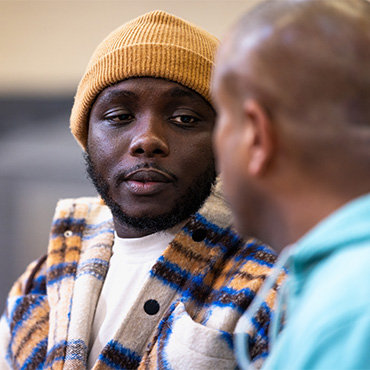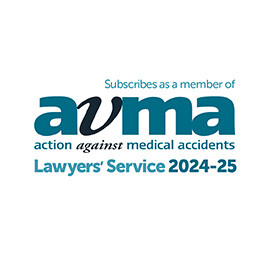What is involved in a medical negligence claim?
There are two legal stages to a medical negligence claim. The first stage is the ‘Breach of Duty’ test. This means that you must demonstrate that the care you received was negligent. To overcome this test, it must be shown that no reasonable body of medical practitioners would have deemed the care you received as appropriate or reasonable.
Stage two is referred to as ‘Causation’ which means that this Breach of Duty is the cause of your injury and that it could have been avoided had it not been for this breach.
To be successful in claiming compensation, both tests must be satisfied.
Contact us for advice: 0800 612 8196 advice@cfglaw.co.uk
What evidence is needed to prove a case?
To prove a case, there are a few pieces of evidence that we need to obtain.
- Medical records – we will apply to receive these from your doctor and hospital with your consent. Any records or notes you have taken can also be useful.
- Witness Statements – detailed statement from the injured person, as well as close family and friends.
- Photographs – showing any injuries as a result of the negligence.
Once these have been gathered, you will also need to see an independent medical expert, who will assess whether the treatment you received was up to the standard expected and whether your injuries or condition were caused or made worse by inadequate treatment. They will then prepare a report on their findings.
If this report finds there was substandard care, and that this resulted in your injuries, you will then need to see further medical experts to prepare reports about your condition and prognosis.
Contact us for advice: 0800 612 8196 advice@cfglaw.co.uk
How long does it take?
Due to the complex nature of medical negligence claims and the different issues that arise from both a medical and legal perspective, claims can take some time to investigate. How long your claim will take will depend on the nature of your injuries and how they were sustained.
Once a formal letter of claim has been sent to the person or body who is responsible for your injuries, they have 14 days to acknowledge your claim, and a further four months to respond about whether they think they are liable or not.
Contact us for advice: 0800 612 8196 advice@cfglaw.co.uk
Are there time limits?
As with all compensation claims, there are limits on the amount of time you have to make a claim. You usually have three years to file a claim at Court from the date of the negligence. However, there are some circumstances where this time can be extended, including:
- If it is a child who has been injured, they have three years from the date of their 18th birthday to make a claim. A claim can be made before this time through a litigation friend making decisions on their behalf.
- Where someone lacks capacity to make decision for themselves, there is no limitation on when they can make a claim, unless they regain mental capacity.
- Where someone has received treatment but does not know at the time this treatment was negligent. The three-year time limit applies from the date when the negligent treatment was first suspected.
- Where someone dies because of the negligent treatment, the time limit applies from the date of death.
Contact us for advice: 0800 612 8196 advice@cfglaw.co.uk
Is it medical negligence or clinical negligence?
Both clinical and medical negligence are used to describe the failure of duty by a medical professional which results in injury.
Contact us for advice: 0800 612 8196 advice@cfglaw.co.uk
Will making a claim affect my treatment?
No, making a claim should not affect any treatment you are receiving. You may wish to transfer your treatment to a different hospital if you are no longer happy receiving treatment at the hospital where the negligence occurred. We can help you to transfer to another hospital and advise you on the best treatment options available to you if you wish.
Your right to receive treatment should not be impacted by making a medical negligence claim.
Contact us for advice: 0800 612 8196 advice@cfglaw.co.uk
Will making a claim affect the NHS?
If you have been injured as a result of medical negligence, you deserve to be compensated for the pain and suffering you have experienced. There is a separate government budget that is specifically agreed for any compensation claims, and which has no impact upon the NHS and the healthcare provided. Therefore, you do not need to worry about how making a claim will affect the care the NHS provide.
Making a claim, however, does allow the NHS to identify where things might have gone wrong in the past, and enables them to put in place procedures and safety protocols to prevent the same mistakes happening in the future.
Where mistakes have happened in an NHS hospital, the claim will be against the NHS Trust who manages the hospital, rather than the individual who has treated you. If the mistake happened in a private hospital, your claim will be against the individual who will have private insurance to cover them if a claim is made against them.
Contact us for advice: 0800 612 8196 advice@cfglaw.co.uk
When should I make a claim?
You should start a claim as soon as possible after you think the negligence has happened. This allows your legal team to start gathering the evidence in your case and investigating what has happened. Not only this but starting a claim can also mean that you can access other rehabilitation and support to help with your recovery.
Contact us for advice: 0800 612 8196 advice@cfglaw.co.uk
Do I need to make a complaint?
If you are worried about the treatment you have received, you should make a formal complaint to the provider. Most hospitals and care teams will have a dedicated claims process and team, who will investigate what has happened and try to find out what went wrong. However, this complaints procedure will only identify what has happened and will not compensate you if any negligence is found.
You can have an ongoing complaint whilst also making a claim for compensation. There is usually a time limit on how long you have to make a complaint, which can be shorter than the time you have to make a claim.
Contact us for advice: 0800 612 8196 advice@cfglaw.co.uk
How much does it cost to make a claim?
Most of our medical negligence claims are undertaken under a no win no fee agreement. This means that if you lose your case, you will not have to pay our fees, meaning there’s no financial risk to you in pursuing a claim. Our solicitors will be able to talk you through what this means and our Conditional Fee Agreement (CFA) and provide you with all the details, as well as answering any questions you may have.
Contact us for advice: 0800 612 8196 advice@cfglaw.co.uk
What if my treatment was paid for privately?
It does not matter if the inadequate care and treatment you received was from the NHS or a private company, you can still claim compensation.
If as a result of your injuries, you require private rehabilitation and treatment, you may be entitled to claim this cost back as part of your compensation claim, if it was required as a result of the negligent treatment.
Contact us for advice: 0800 612 8196 advice@cfglaw.co.uk
How do I make a medical negligence claim?
To start your claim, or simply to discuss the options available to you, speak to one of our expert medical negligence solicitors today. They will be able to explain the process to you and help with any questions you might have. All enquiries are completely free with no obligation to continue with a claim.
Contact us for advice: 0800 612 8196 advice@cfglaw.co.uk

















